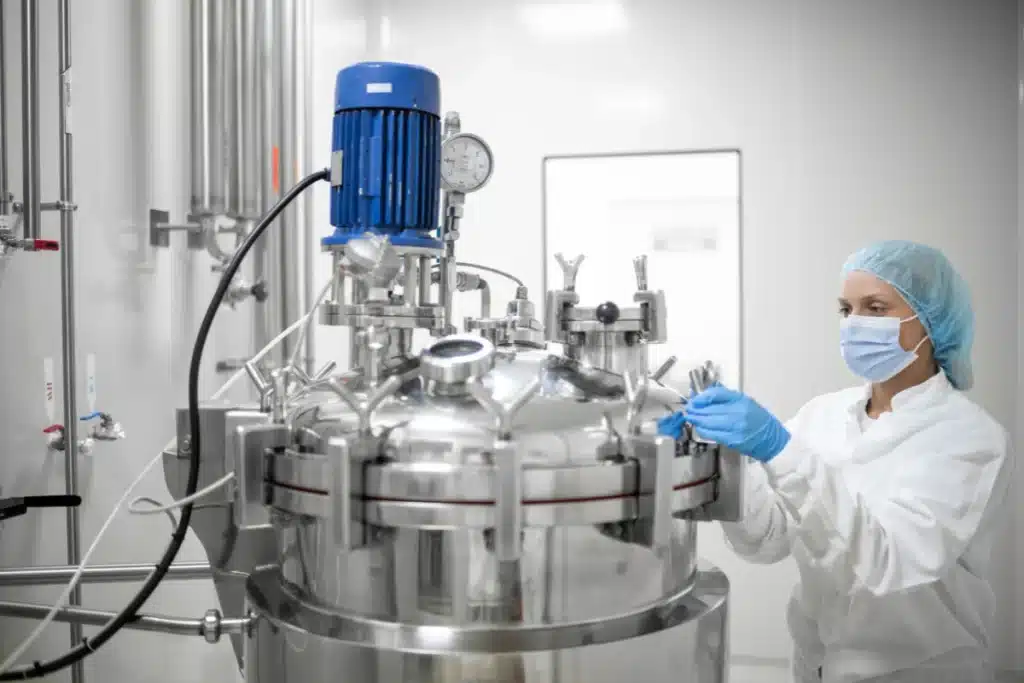One of the essential tasks in manufacturing is managing, and limiting product recalls. One of the ways you can do this is through quality manufacturing-focused ERP software.
Product recalls can substantially impact your business, so you must prepare in advance for them. In a competitive market, companies that can control their product recalls are the ones that limit cost—which enhances profits.
An industry-specific ERP software, such as GoldFinch ERP, has the features needed to prepare for and mitigate the risk of recalls. While it’s true that the manufacturer is ultimately responsible for product recalls, an ERP system is crucial for supporting and promoting recall prep and minimization.
Reduce/Prevent Recalls with Manufacturing ERP
To understand how ERP can help your company reduce recalls and manage the recall process, you will want to consider the following:
Management of Supply Chain
Simply put, supply chain management is the process of managing your company’s supply chain.
Your ERP system facilitates industry standards for managing suppliers, assessing risk, and ensuring that the raw materials you purchase are from vendors you can trust. The mission is to track and fully document approved suppliers, catalog results from quality control testing, and reduce risk levels to ensure that internal and consumer requirements are always met.
The ERP maintains information on approved/activated vendors, such as what materials they supply, quality control results, certifications, and anything relevant to the central data system. Each also has a risk rating to ensure that any dangers related to recall and finished products are maintained.
In addition to keeping information on activated providers, the ERP system allocates and manages approved substitutions to provide alternates if one supplier cannot provide what you need. With the work completed, your company is best positioned within the supply chain. You’ve decreased your need and risk of using a supplier you are unfamiliar with should an emergency arise.
Vendors are added to the system and sorted according to preference and risk level. If one becomes unavailable, you have the information you need to manage the risk to the safety of your supply chain.
Management of Inventory
To increase your company’s revenue and decrease production costs, you must have an inventory management system. ERP offers a great way to manage this portion of manufacturing and recalls.
Many companies use ERP to manage their inventory. The software allows them to record the raw materials they have in stock and ensure optimal levels at all times. You never have to be concerned about not having enough or having too many.
When it comes to the grade of the products, you can ensure that you have high-quality raw materials—by using barcode scanning to link product/lot records to batch tickets, delivery documents, QC test results, and labels. Your ERP system can track the entire process—from the raw materials to sending the finished product out to the consumers.
Your ERP system supports quality manufacturing standards that assist with preparing for a recall, such as: maintaining cGMP (current Good Manufacturing Practices), FDA reporting, GFSI compliance, and other regulations specific to the industry—ensuring you have a documented trail that can be audited and adapted as necessary.
To mitigate recall risk, you must focus on the entire supply chain, from your raw materials to your finished product. This means that protocols are managed at all times to ensure the quality of arrivals and departures.
Your formulas/recipes and instructions can be managed, scaled, and checked with an industry-specific ERP solution to ensure consistency throughout the production process.
Managing Product Recall with ERP
Above, we discussed how you could reduce or prevent product recalls using an ERP system. Now, let’s look at how you can use ERP to manage your product recalls.
Be Prepared for Recall
Most manufacturing companies have the machinery and artificial intelligence (AI), allowing them to produce large numbers of their products at once. When delivering materials to your clients, you should always prepare for positive and negative responses.
You may have customers who receive damaged items or don’t receive their entire order. They will likely return these items and request appropriate replacements in this case. You must plan for this type of situation.
You can use your ERP system to manage customers and provide stellar customer service by replacing products and solving issues quickly.
Policy/Planning
A policy, of course, is a set of rules that your team implements and follows. By adopting policies, your company is better able to manage product recalls.
For example, many manufacturing companies produce specific products which may wind up damaged during shipment. Therefore, they establish guidelines to retain a positive relationship with that client.
When developing your policies, it’s crucial that you think from the customers’ point of view. You must also be prepared to accommodate your customers while convincing them to follow your policies even if they disagree.
One of the best ways to handle product recalls is to have policies and plans to ensure that your customers are taken care of and resolve product damage issues swiftly.
Communication
When you are hiring employees, you must make sure they have good communication skills and the ability to solve your customers’ problems. Even if your customers purchase a product and discover faults, if your employees have good communication skills, they can defuse the situation and maintain the customers’ trust.
The manager in charge of recalls must identify substantial recall stakeholders in the preparation and provide training to help employees with communication skills, including distributors, financial institutions, retailers, regulatory agencies, service centers, sales forces, dealers, and employees.
Employees can use ERP with Customer Relationship Management (CRM) tools, like Salesforce, to provide customer service and save time. The sales team records the customer’s info when they purchase, so the information is readily accessible when needed.
Conclusion
In manufacturing, preventing and managing product recalls is an important task. There are plenty of reasons why products are recalled, including quality and safety issues.
Regardless, a quality ERP tool can help with managing such recalls. Goldfinch ERP offers invaluable solutions such as lot tracing and inventory tracking. Additionally, you can access these aides from your mobile device (so you don’t even have to be in the office). Finally, you can send out automated alerts to your customers, notifying them of the recall.
If you’re in manufacturing, let’s talk. We have solutions to help your business!



